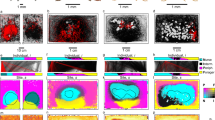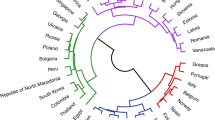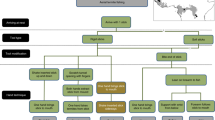Abstract
PROF. V. C. WYNNE-EDWARDS has recently1 coined the term ‘natural conventions’ to refer to intraspecific checks on population density which keep the density below the level at which the population would overtax its food supply. He, in fact, maintains that this is the main function of the conventions and that this explains their origin. Territoriality, peck orders, visual and audial display (involved in density-dependent reproduction and migration), mortality from stress, and other phenomena are examples.
This is a preview of subscription content, access via your institution
Access options
Subscribe to this journal
Receive 51 print issues and online access
$199.00 per year
only $3.90 per issue
Buy this article
- Purchase on Springer Link
- Instant access to full article PDF
Prices may be subject to local taxes which are calculated during checkout
Similar content being viewed by others
References
Wynne-Edwards, V. C., Animal Dispersion in Relation to Social Behaviour (Oliver and Boyd, Edinburgh, 1962).
Lack, D., The Natural Regulation of Animal Numbers, 270 (Clarendon Press, Oxford, 1954).
Author information
Authors and Affiliations
Rights and permissions
About this article
Cite this article
VAN VALEN, L. An Origin for Some Natural Conventions. Nature 198, 605–606 (1963). https://doi.org/10.1038/198605a0
Issue Date:
DOI: https://doi.org/10.1038/198605a0
Comments
By submitting a comment you agree to abide by our Terms and Community Guidelines. If you find something abusive or that does not comply with our terms or guidelines please flag it as inappropriate.



